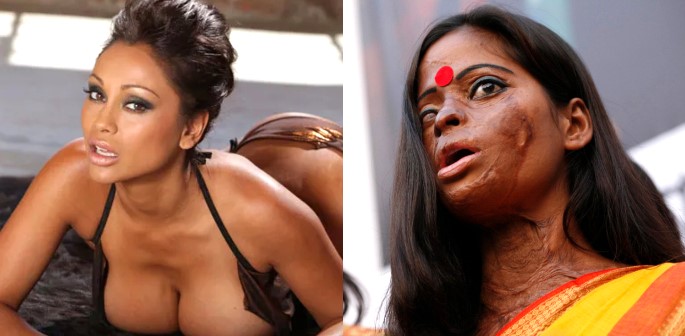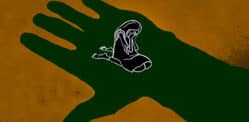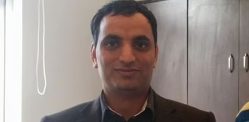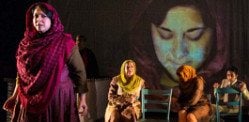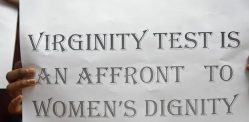"A girl is far more responsible for rape than a boy"
India continues to grapple with complex issues pertaining to porn and rape.
The Indian society’s fascination with the adult entertainment industry is undeniable.
In recent years, the industry has witnessed a growing number of Indian actors and actresses gaining popularity, both domestically and internationally.
This level of inclusivity has been enhanced by platforms like OnlyFans and Fansly where individuals can share explicit content, without actually participating in “conventional porn”.
In stark contrast, rape victims in India continue to face stigma, shame, and judgment.
Even as the nation grapples with the urgent need for gender equality and sexual consent education, survivors often encounter societal biases that silence their voices.
But, why is this, and what contributes to such a difference in views?
Are pornstars admired more? Why isn’t there more importance put on rape victims? Are women in general suffering no matter what?
Looking at real-life cases and perceptions of both pornstars and rape victims, we uncover the answers to these pressing issues.
State of Porn in India
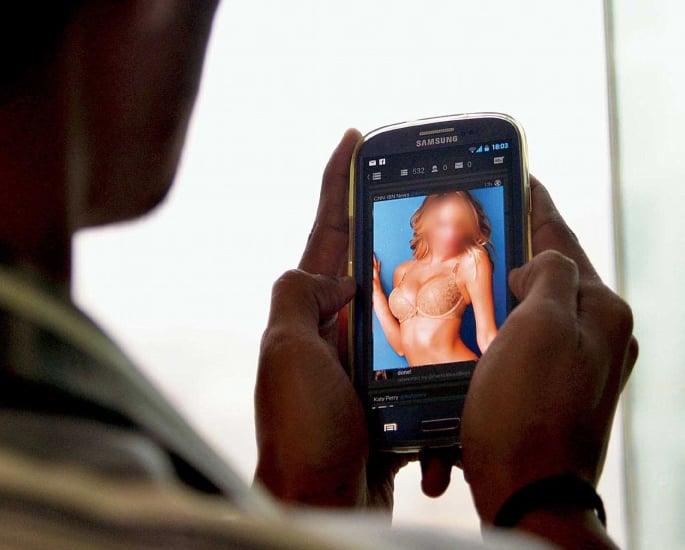
India’s relationship with pornography is a complicated one.
While the private consumption of explicit content is not outrightly illegal for consenting adults, the production and distribution of such material have always been restricted.
This control is governed by India’s obscenity laws under the Information Technology Act, 2000.
In the digital age, India’s regulators have attempted to pull down the curtains on porn by blocking access to specific websites and online platforms.
Yet, the internet has often thwarted these efforts.
The government’s endeavors to shield the public from porn have ignited fiery debates on cyber censorship, the right to free expression, and the effectiveness of such barricades.
In India, the mere mention of porn can send ripples of discomfort through polite society.
Openly acknowledging the consumption or discussion of explicit content can elicit raised eyebrows and whispered condemnations, making it a topic best left unsaid in many circles.
Additionally, attitudes towards porn simmer and bubble.
While conservative factions call for stricter regulations, fearing the social and moral repercussions, others champion personal freedom and the right to choose.
This ongoing dialogue wrestles with the balance between individual liberties and the potential societal impact of explicit content.
Although, whilst there are barricades around porn’s distribution and production, it hasn’t halted consumption.
In a 2020 article, Firstpost released some startling statistics about India’s porn habits.
It revealed that as of 2018, India is the third largest country for watching porn, with only the US and UK ahead of it. It went on to state:
“According to Pornhub, India’s average time spent on the website in 2018 has increased, though by only 2 seconds.
“The average Indian spent 8 minutes 23 seconds on the website (per session) this year.”
“Also, while Indians of every age group got a little taste of the smut, 44 percent of visitors in India were aged between 18 to 24 years, while 41 percent of them were aged between 25 years to 34 years.
“The average age for Indians exploring the world of porn in 2018 was 29.”
This figure shot up in 2020 due to Covid-19 lockdowns and India Today reported that the country led the world in porn consumption with a 95% spike in traffic to adult sites.
State of Rape in India
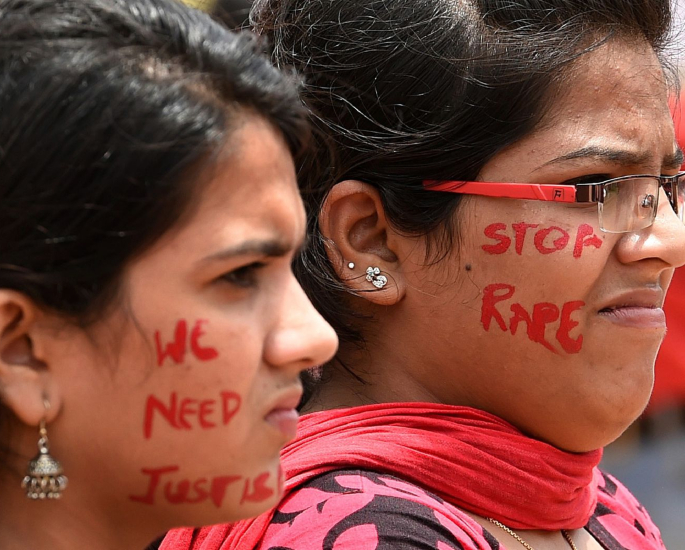
In a similar fashion, rape and sexual assault is also a conflicting topic in India.
India’s legal arsenal against rape is formidable, with Section 376 of the Indian Penal Code unequivocally criminalising rape.
Over the years, amendments have been introduced to bolster punishment for sexual offenders, particularly those involved in heinous crimes or child rape.
Likewise, recent years have witnessed a surge in public awareness and activism surrounding sexual assault.
High-profile cases, like the 2012 Delhi gang rape, ignited nationwide protests and galvanised discussions about women’s safety and rights.
Despite heightened awareness, conversations about rape remain delicate and, often, taboo in India.
Survivors, particularly women, frequently confront societal stigma, victim-blaming, and discrimination.
Many rape cases in India remain unreported due to fear of reprisal and doubts about the criminal justice system.
Reporting rape can be an intimidating ordeal for survivors, and efforts are underway to make the legal process more survivor-friendly.
Organisations and activists have been tirelessly working to empower women, disseminate knowledge about sexual assault, and offer support to survivors.
Initiatives include self-defense classes, counselling services, and legal aid.
Additionally, the Indian government has rolled out campaigns like “Beti Bachao, Beti Padhao” (Save the Girl Child, Educate the Girl Child) and established the Nirbhaya Fund to enhance women’s safety and security.
The media also plays a pivotal role in shedding light on rape cases.
While it raises awareness, concerns arise over the sensationalisation of these incidents and their impact on the privacy of victims.
A resounding call for societal change has echoed through India, urging shifts in attitudes toward rape and sexual assault.
Whilst it can be argued that India has progressed in its dealings of rape cases, the figures show a stark difference.
Published in August 2023, the Statista Research Department looked at the number of reported rape cases in India from 2005 to 2021.
It found that in 2021 alone, the total number of reported rapes in the country was over 31,000 – an increase from 2020.
They also dived into the experiences of victims, explaining:
“[The] fight for justice is not made easy due to the system that often faults the victim for their misfortune.
“Instances have been reported where victims are confronted with hostile conditions at police stations and have been often pressured to withdraw their cases.
“However, once a case goes to trial, it can take decades before anything is resolved.”
“Rape cases, in particular, face huge backlog where the number of new cases supersedes the number of cases disposed of every year.
“The process is arduous and could add so much trauma to the victim’s life that they often buckle under pressure from family of their own or that of the perpetrator.”
India is renowned as one of the world’s most perilous places for women.
Indian women find themselves in a constant state of vigilance when navigating the streets, workplaces, or markets on their own.
This stems from the prevalent patriarchal culture in India, in which some cases, normalises domestic violence.
Research indicates that a significant portion of employed women experience domestic abuse at the hands of their husbands.
For women who do not earn an income, their vulnerability is even more pronounced, increasing their reliance on their male partners, in contrast to those who contribute financially to their households.
The widespread poverty throughout the country plays a central role in perpetuating low literacy rates, ultimately resulting in the disempowerment and mistreatment of women.
But just upon looking at the foundations, we can see there is a difference in how porn and rape are considered in India.
However, one could suggest both are glorified in their own sense too.
India’s Not-So-Hidden Rape Crisis
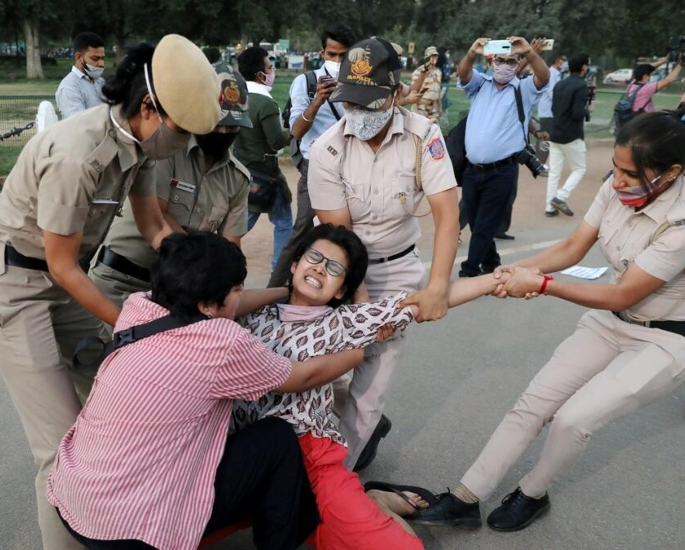
In order to get a better understanding if pornstars are in fact held in a higher regard to rape victims, we need to focus on how rape is depicted and spoken about in India, by Indians.
There is no denying that there is a big rape culture in India, given the statistics provided.
It has been described as “sexual terrorism” and officials often blame the victims (mostly women) for the crime.
In July 2023, Vidya Krishnan wrote an article for The New York Times where she spoke about this epidemic in her own country:
“Society and government institutions often excuse and protect men from the consequences of their sexual violence.
“Women are blamed for being assaulted and are expected to sacrifice freedom and opportunity in exchange for personal safety.
“This culture contaminates public life – in movies and television; in bedrooms, where female sexual consent is unknown; in the locker room talk from which young boys learn the language of rape.
“India’s favorite profanities are about having sex with women without their consent.”
However, rape isn’t solely down to the culture of India per se, it’s down to the perpetrators and real-life cases. And, how these crimes have been dealt with.
For instance, in 2002, brutal violence swept across Gujarat and there was a case where a 19-year-old pregnant woman was gang raped.
In 2012, a physiotherapy student was beaten and raped on a moving bus which became one of the most globally followed crimes, known as the Nirbhaya case.
The victim was penetrated by a metal rod that pierced her colon and her naked body was dumped on a road in New Delhi – she later died of her injuries.
In 2018, an 8-year-old girl was drugged and gang raped for days and then murdered.
Just two years later, a 19-year-old girl was also gang-raped in which her spinal cord was broken and she later died.
However, these cases barely touch the magnitude of the problem in India.
The “culture” of rape that people often refer to is massively down to how this crime gets punished and dealt with.
For example, in June 2020, convicted rapist and ex-priest Robin Vadakkumchery sought to marry a girl he raped and impregnated when she was 16 years old.
The 55-year-old said he wanted “to ensure the welfare of the child” now that the survivor is of legal age.
The girl and her parent reportedly agreed to marry him.
This is one of the ploys that criminals use to avoid jail time or punishment.
Judges will sometimes agree to avoid adding further work to their backlog of cases, and families will say yes as they don’t have the finances to carry on with the trial.
In a separate incident, village elders in Uttar Pradesh, along with the parents of a 14-year-old rape survivor, arranged a marriage between the girl and the man accused of raping and impregnating her back in 2017.
Media reports indicated that the girl’s parents are daily wage labourers and were unable to support her and her child financially.
Their appeals for financial assistance from the local authorities went unanswered.
The woman said she immediately called the Delhi Commission for Women (DCW) helpline to file a complaint, continuing:
“He started to cry in front of the Assistant Commissioner of Police (ACP) then she asked me what I wanted, to which I said I want justice.
“She then told me if I wanted to live respectfully in the society then I must marry him.”
“So I agreed and didn’t file the complaint.
“I was very strong at that time and I was also willing to fight the case but he and his family forced me, threatened to beat my parents if I didn’t agree to marry him.”
In June 2019, they eventually tied the knot.
However, merely two months into their marriage, the man abruptly departed, confessing to the survivor that he had married her solely to evade rape accusations.
In patriarchal societies, rape is so heavily stigmatised that a woman is often made to feel as though she loses her ‘honour’ and her sense of purpose in life when she becomes a victim of rape.
Speaking on this is lawyer Seema Sammridhi, who said:
“In our society, people continue to have such regressive thoughts that a woman who has been raped is ‘impure’.
“Such backward ideas leave women with no choice but to accept her rapist as her husband.”
These cases and the handling of them show the lengths women have to go to to get justice.
But, in many scenarios, they have to marry the person who has given them so much trauma, all because of the lack of punishment from India’s government.
This adds to how rape victims are often seen as “defiled” or “impure”.
Does Porn lead to Rape?
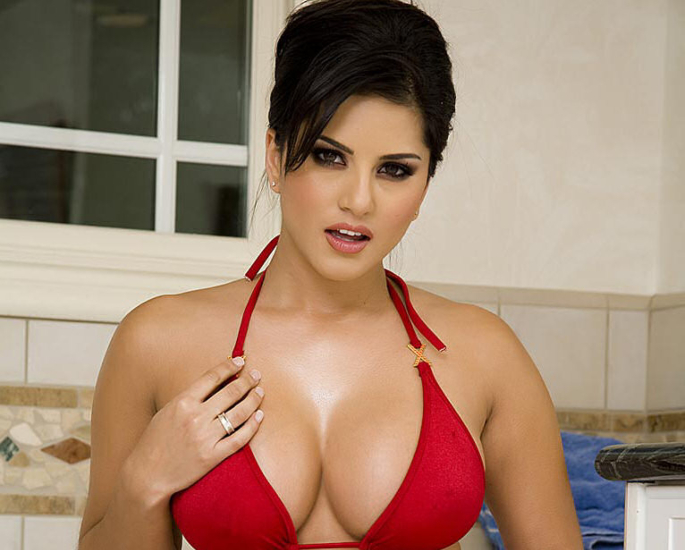
While porn and rape are two separate areas within India, there is an argument that the consumption of porn may lead to sexual abuse.
In 2018, the Madhya Pradesh home minister, Bhupendra Singh, stated the government was considering a state ban on porn as they believe it’s the reason for a rise in rape and molestation crimes.
He has been quoted saying:
“We think the reason for rising number of child rape and molestation cases is porn.”
“We are contemplating banning porn in Madhya Pradesh, and will approach the Centre in the matter.”
However, not much else has been said to evidence that porn is a direct factor in rape. In 2015, writer Girish Shahane supported this by saying:
“At best, researchers have found increased levels of aggression or misogyny in subjects who had just watched scenes of murder or sexual violence.
“Increasingly, there are arguments in exactly the opposite direction.
“The claim is that the availability of pornography reduces the occurrence of rape.”
“The most important fact backing this argument is that, even as porn has become ubiquitous, rape has become rarer in societies where data can be trusted.
“In countries like India where rape often goes unreported and crime statistics are questionable, it is impossible to know whether rapes are on the increase or decrease.”
So, watching or sharing porn in India, even through its legal confines doesn’t solely contribute to a person’s reason to commit rape.
India’s View on Pornstars

Diving into India’s rape crisis raises alarms but to get a better understanding of how rape victims and pornstars are seen, we must first look at the general view of pornstars in the country.
We know how India treats rape victims (in some instances), and whilst we will dive further into the nation’s view on these victims, it’s interesting to weigh up how pornstars are perceived.
Firstly, there are world-renowned Indian adult stars that have made a name for themselves.
Sunny Leone, is the most famous, with others such as Poonam Pandey, Priya Rai, and Anjali Kara.
So, what is the overriding opinion of these adult stars in India?
In 2016, columnist Shikha Dalmia wrote for The Week. Speaking specifically about Sunny Leone, she said:
“One reason why Leone has managed to make inroads into respectable Indian company is her personality.
“She may be unapologetic about her sexual past, but she is not a rebel trying to shake India out of its primitive sexual notions.
“She combines her sexuality not with an in-your-face aggressiveness but a sweet vulnerability.
“She wants to seduce India, not show it the middle finger. She is more Marilyn Monroe, less Madonna.”
In 2021, the Deccan Chronicle spoke to sexuality educator Apurupa Vatsalya who gave her take on porn:
“So porn is unlikely to go away.
“Moreover, despite being the world’s second-largest population, we are a sexually repressed culture.
“Many of us still believe that having or talking about sex outside the context of marriage is morally wrong.
“But none of this means that people aren’t exploring with each other or that they aren’t curious.
“It just means that these topics are shrouded in shame.
“A natural extension of that is also our aversion to adult cinema.”
Within the same piece, India’s sex-positive content creator, Leeza Mangaldas, highlighted why porn is a gateway for Indians:
“Watching porn brings sexual pleasure minus the fear of pregnancy, disease, or rejection.
“So, all porn cannot be considered ‘bad’ just like all porn cannot be considered ‘good’.”
“It’s important that the adult industry does everything in its capacity to ensure porn performer’s rights, and to ensure that the porn on their platforms is ethical and consensual at all levels.”
These narratives show how porn is shone in such a light that makes it positive, alluring, and ‘acceptable’.
Of course, everyone is entitled to become a pornstar or consume the material, but is there as much effort to create a safe space for rape victims as there is for pornstars?
That’s not to say that there haven’t been men or women protesting or fighting for survivor’s rights, because there has.
But, it is interesting to see how porn-positive articles are less censored than rape-ridicule ones.
In 2021, Madhuja Goswami wrote for Medium in which she compared Priyanka (an upcoming pornstar) and her similarities to Sunny Leone:
“Priyanka does what Sunny did, yet she deliberately avoids being Sunny. She is insincere as she does not have the courage to become full-fledged Sunny.
“If she does, she may be called ‘poor man’s Sunny Leone’, but at least she will not be the cheap joker that she is now.
“She knows in her heart that it is her decision to copy Sunny Leone that has boosted her career, yet she only goes halfway through.
“She should show a bit of liberated feminine courage and post photos as genuine tributes to her idol.
“Sunny Leone dared to display her feminine beauty to the world and received a lot of flak for it.
“The least Priyanka could do is to have the courage to show her own feminine self and, if necessary, deal with her share of flaks.”
Additionally, there have been websites promoting new or the ‘most famous’ Indian adult stars.
In her 2021 for Outlook, Ranee Saheney listed the top pornstars to look out for. She wrote about Rashmi Nair, Tina Nandi, Zoya Rathore, and others.
The argument here is that India needs to be more inclusive of its pornstars but also show the same support and energy to its rape victims.
As mentioned before, pornstars or those looking to get into the adult industry are normal or should be accepted.
In the past, there was a lot of negativity towards porn in South Asian culture, but with the rise of platforms like OnlyFans, explicit content creators are more ‘accepted’.
But as we’ve seen, rape victims are shunned in society and haven’t received the same acceptance.
India’s View on Rape Victims
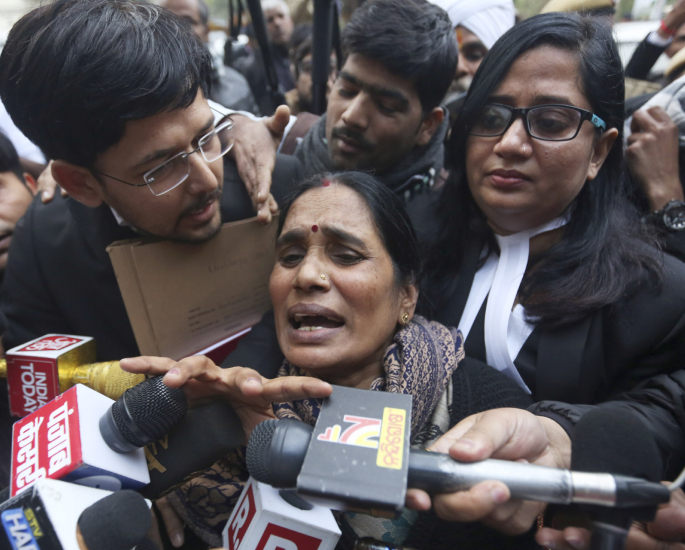
Cultural norms in India have fostered victim-blaming, which has become an integral part of the rape culture.
Opinions and judgments from the victim’s family, community, and even legal professionals discourage women from speaking out about their experiences.
And, this allows men to continue committing acts of violence.
Those brave enough to appear in court often face stigma and trauma.
This culture of blaming survivors is a contributing factor to why rape is frequently chosen as a means of expression by young men who feel emasculated due to frustration.
In 2013, journalist and activist Ruchira Gupta spoke to CNN in which she described India’s rape problem. She revealed:
“When I read about the rape of a 23-year-old photojournalist in Mumbai, I thought, here we go again.
“On December 6, 1992, when I was a 29-year-old reporter covering the demolition of a mosque in northern India, I was attacked.
“I wasn’t raped, but my attackers sexually assaulted me and then tried to kill me.
“Someone dragged me to a trench outside the mosque and pulled my shirt off. But a passerby jumped in, fought off my attackers, and saved me.
“When I appeared in court to testify against the attackers, their lawyers asked me questions that implied I was responsible.
“How could the daughter of a good family have gone to cover the demolition? Did I smoke? What kind of clothes was I wearing? Did I believe in God?
“The judge did not stop them.
“It was a demoralising and toxic experience, but one that is not unknown to women in India who choose to speak out against sexual attacks.
“They are silenced by a process that heaps shame, fear, and guilt on them.”
Even in this case, professionals questioned Ruchira as if she enticed the perpetrators in any way.
Perhaps one of the most harrowing comments to ever be made public was from Mukesh Singh.
He was one of six rapists convicted in the horrifying Nirbhaya case in Delhi. In the documentary India’s Daughter, Mukesh expressed:
“A girl is far more responsible for rape than a boy. A decent girl won’t roam around at 9 o’clock at night.
“Housework and housekeeping is for girls, not roaming in discos and bars at night doing wrong things, wearing wrong clothes.
“About 20 percent of girls are good.”
He went on to claim that if women are not “good”, then men have the right to rape them in order to “team them a lesson”. He also said:
“When being raped, she shouldn’t fight back. She should just be silent and allow the rape.”
What makes these remarks particularly alarming is not just the heartlessness and victim-blaming articulated by this particular rapist.
It’s the extent to which his comments mirror attitudes that are distressingly prevalent in India, contributing significantly to the hostile environment towards women.
Indian writer Salil Tripathi, as stated in Mint, asserts that Mukesh’s statements shed light on the authentic discourse surrounding rape in India.
He emphasises that rape is not merely about sexual desire; it’s fundamentally “about control, power, and violence”.
This perspective clarifies why Mukesh’s interview has sparked such a powerful reaction.
His comments encapsulate the rationale behind this argument, one that numerous Indian women are earnestly challenging.
Moreover, traditionalists in India tend to perceive rape as a matter of communal honour and moral values.
According to their perspective, women’s sexual relationships are typically made by parents when they choose husbands for their daughters.
In this context, a woman’s sole legitimate choice concerning her sexuality is to comply with her family’s wishes.
From this standpoint, rape is seen as the consequence of the victim’s transgressive behaviour, often attributed to the corrupting influences of modern society.
In this perspective, rape can be deemed justifiable, and the perpetrators are considered innocent.
This view was backed up by Suzanne Hill and Tara Marshall’s 2018 research “Beliefs about Sexual Assault in India and Britain”. They found:
“In India compared to America, victims of rape and sexual assault are treated more harshly by society.
“This suggestion is supported by Nayak et al. (2003) who found that American students were more positive, or less negative, about sexual assault victims than were Indian students.”
The Guardian added their thoughts in 2019, commenting on how poignant rapes are in India.
They reported on the murder and gang rape of a 27-year-old vet in Hyderabad. They had deflated her scooter tyres, then waited till she came to offer help.
After a heinous attack and rape, they doused her in kerosene and set her alight.
As well as the Hyderabad case, a lawyer was raped and murdered in Jharkhand, as well as a 55-year-old cloth seller in Delhi, and a teenager saw the same fat in Bihar.
Shortly after this string of attacks, a schoolgirl named Twinkle was raped by her neighbour who would often give her sweets as she went past his house.
The rapist was Mahendra Meena, a truck driver who has two daughters of his own (aged 2 and 18 at the time of the attack).
Social activist Deepa Narayan exclaimed:
“Society here devalues women systematically and makes them subhuman, and rape is the worst symptom of that.
“It does feel like the levels of depravity and cruelty in these crimes are increasing.”
Although the equality issue in India is no secret, what significance does the government play in how rape is viewed in India?
In 2019, Anuja Kapur, a New Delhi-based criminal psychologist who assisted officials in the Nirbhaya case revealed:
“Rape is a non-bailable offense in the Indian penal code.
“But people do get bail because of a lack of evidence [in many cases].
“The accused are often sheltered by police, or politicians, or even lawyers.”
Adding to this is Seema Misra, a lawyer from India, who commented:
“People often say a tough law can bring about change.
“But what is a tough law? Law needs to be effective and the investigating agency and prosecution more proficient and efficient. That is a dire need.”
Further research by the Pune-based Equal Community Foundation that works with teenage boys from low-income households found:
“Most of these boys believe that girls in western clothes are immoral and that they can be harassed because they are asking for it.”
Katke and Kusurkar, founders of the organisation, are concerned about the recurring rape cases:
“We believe that men and boys are not naturally violent; patriarchal norms make them insensitive.
“Therefore, not every man is a part of the problem, but every man can be a part of the solution.”
Moreover, Nayreen Daruwalla, director of SNEHA’s prevention of violence against women and children, notes:
“There is no question of consent. ‘She is my wife! She is my property. So I have the right to just use her.’
“This is the thinking.”
In India, persistent obstacles hinder victims from attaining the justice they deserve.
Furthermore, there is a glaring lack of respect for women’s confidentiality by police officers and medical examiners.
The continued use of the traumatic and invasive two-finger test, which lacks scientific validity, to determine whether a woman has been raped exacerbates the problem.
The question then becomes: what can India do to end its rape crisis? The answer is not simple.
This rigid gender ideology, the definition of manhood, and a woman’s role in society have resulted in women becoming victims of horrifying rapes.
This state of affairs largely persists because the prevailing norms favour men, shaping their beliefs that they are entitled to a woman’s body and desensitising them to the suffering caused by such assaults.
What is the Real Opinion?
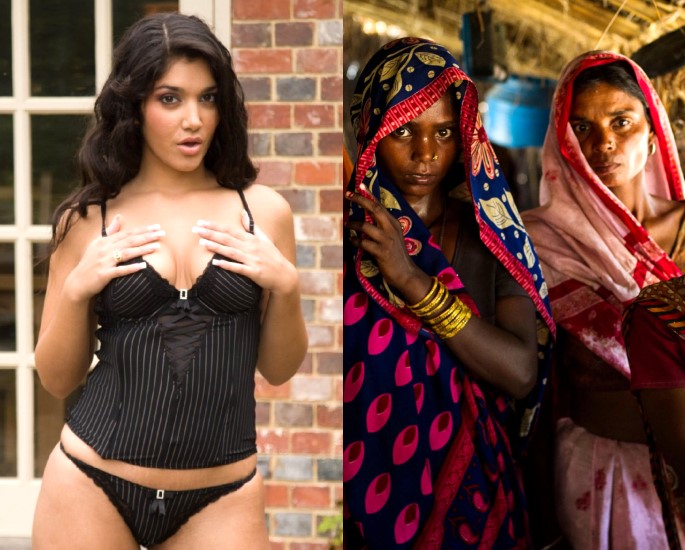
Whilst writers, activists, and professionals can give their opinion on the state of pornstars, explicit material, and rape, what does the Indian public think?
Looking at platforms like Quora where there is a massive Indian audience, DESIblitz investigated the opinions of those from India.
For instance, Mahesh Kayitan explained why rape victims aren’t held in the same status as pornstars or other women:
“Everyone wants to associate themselves with something that has social advantage.
“And the mind never accepts failed people to associate with, as we assume it could drag us down.
“In this context, the person who got raped failed to protect herself.
“So people choose not to associate with her or even respect or comment on her current status.
“E.g. we may take a picture with a pornstar in a shopping mall but we don’t want to take a picture with a rape victim, because if we do, it means we are associating with a failed person.”
On this same topic, an anonymous comment read:
“It’s not only Indians. Most of us have a tendency to press someone who appears weak.
“It’s the person who made the choice whether he/she will sob about what happened to them or just stand up and don’t give a f*ck about what other people say.
“According to me a pornstar is acceptable because people can’t do much about that, also the pornstar itself doesn’t care about them.”
Abhinav Devaria, an Indian student, gave a differing opinion:
“Porn stars aren’t accepted but it’s not in the power of society to stop them either.
“They are just out of the reach of so-called society and secretly they are fun for everybody.
“On the other hand, a rape victim’s life is surrounded by that society.
“Her family, relations, prestige is judged by those fundamentalist hypocrites, neglected housewives, those young men.
“She is a soft target for everybody.”
“So till a rape victim rises above these walls of society she will be constantly judged and harassed by so-called society because they have nothing else to do.
“Making a porn is a fiercely independent commercial decision.
“However rape is violent sexual enforcement on the victim.
“Secondly why a porn star shouldn’t be accepted in society. Does her decision to make sex videos make her any less human? Why should she be denied her place in society?”
Additionally, Himanshu Bagdi, another Quora user added:
“Being a pornstar is a profession in a few countries, what’s wrong with it? They get paid.
“But being a rapist is a crime everywhere, they should be treated as the worst humans. Sorry…not even humans.”
Aparna Sharma hinted at why the two areas are handled differently:
“It’s a sad reality, but in our society, people often celebrate fantasy over facing harsh truths.
“Pornstars represent fantasies, while rape victims bring forth uncomfortable realities.”
Anand Mishra opined his thoughts:
“In a culture that’s obsessed with appearances, pornstars are seen as desirable and glamorous.
“Rape victims, on the other hand, reveal the ugly underbelly of our society.”
Kartik Malhotra concluded:
“In a world that values sensationalism, pornstars are admired for their ability to provide a temporary escape.
“Rape victims are seen as grim and never face justice.”
“So we just forget about it until the next case comes along.
“Pornstars are always there and are a release for people and we are a perverted nation so sex will always be deemed as a utopia for us.”
The stark divergence in the societal treatment of pornstars and rape victims is a reflection of the profound contradictions that exist within Indian society.
Whilst porn and rape don’t entirely go hand in hand, there is overwhelming evidence to suggest they are held in a lower regard than pornstars.
That’s not to say pornstars shouldn’t be held in high regard too, but they certainly receive more support in Indian society.
To address this issue and strive towards a more equitable nation, it is imperative for India to address it’s equality issues.
It’s no secret that justice for rape victims is practically nonexistent, however, the backing of pornstars is somewhat more apparent.
All women, regardless of occupation, age, sexuality, abuse need to be treated fairly and with the highest regard.




















































